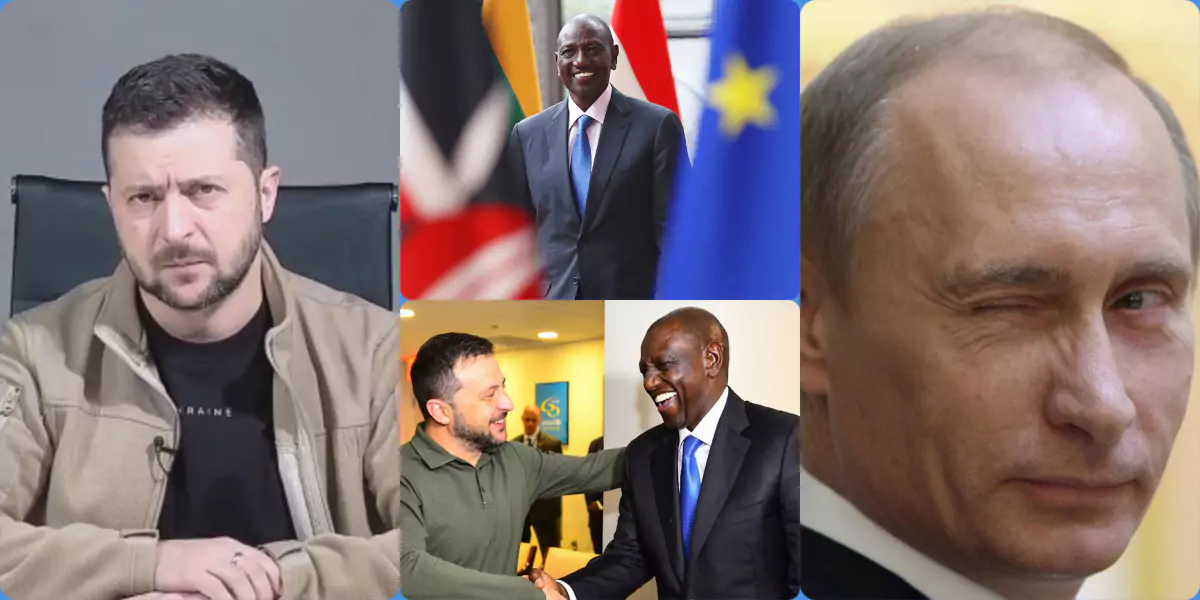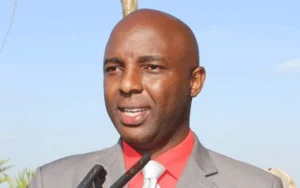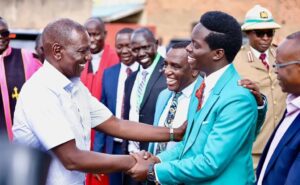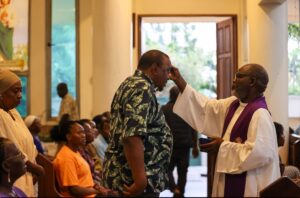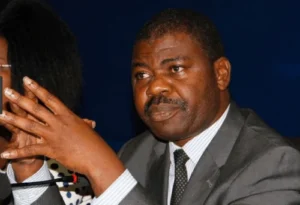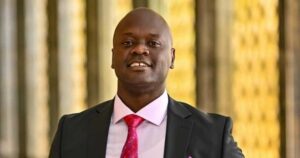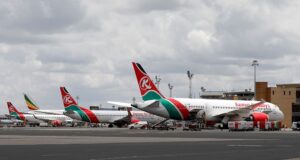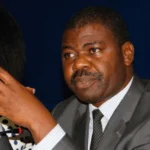Kenya seems to be undertaking on a strategy of “strategic ambiguity” to navigate the complex waters of the ongoing Russia-Ukraine war. Kenya’s President William Ruto’s administration has opted to strike a delicate balance between Russia and its Western counterparts, with the aim of securing benefits from both sides,a strategic approach that has raised eyebrows and sparked curiosity on the global stage.
The turning point in Kenya’s position on the conflict was marked by the unexpected visit of Russia’s Foreign Minister Sergey Lavrov to Nairobi on May 29, 2023.
Read also: Russia’s Invasion of Ukraine: Unraveling Putin’s Motives and Geopolitical Factors
This visit came as a surprise to many observers who had noted Kenya’s previous condemnation of Russia’s invasion of Ukraine at the United Nations Security Council.
![Kenyan President meets with Russian Foreign Minister in Nairobi. [Photo/X/@WilliamsRuto]](https://news.switchtv.ke/wp-content/uploads/2023/10/1024x538_cmsv2_3bee3e41-d361-5b62-9777-f0b8fb4fbc2b-7638330.webp)
Kenyan Ambassador Martin Kimani drew comparisons to African history and highlighted how several African nations had their boundaries determined by foreign colonial powers from afar.
“Kenya is gravely concerned by the announcement made by the Russian Federation to recognize Donetsk and Luhansk regions of Ukraine as independent states. In our considered view, this action and announcement breach the territorial integrity of Ukraine,” Ambassador Kimani said.
Kenya’s shift in tone began to emerge after President Ruto’s warm welcome to Dmitry Maksimychev, Russia’s ambassador to Kenya, at State House in November.
![Kenya's Ambassador to the United Nation's Security Council, Martin Kimani. [Photo/Twitter]](https://news.switchtv.ke/wp-content/uploads/2023/10/download-1200x675.webp)
However, the pivotal moment came when Ruto hosted Belarus Foreign Affairs Minister Sergei Aleinik, a key ally of Russia facing international sanctions for human rights violations and support for the Ukraine invasion.
During Aleinik’s visit, Ruto hinted at potential agricultural partnerships, saying, “With 65% of the world’s uncultivated land, Africa is home to the globe’s agriculture. This is where tractors from Belarus have a future.”
It is confirmed that Aleinik’s visit helped pave the way for Lavrov’s 29 May stopover in Nairobi. He was en route to South Africa to attend a summit of the BRICS, the organisation that brings together the five regional economies of Brazil, Russia, India, China and South Africa.
Hosted Russian Foreign Minister Sergei Lavrov at State House, Nairobi. pic.twitter.com/LGhgWQtEFf
— William Samoei Ruto, PhD (@WilliamsRuto) May 29, 2023
Despite this newfound rapport with Russia and its allies, Kenya’s trade volume with Russia remains modest in comparison to its dealings with the United States and the United Kingdom.
In 2021, Kenya exported Ksh 14.8 Billion worth of products to Russia while importing Ksh 41.7 Billion, primarily consisting of wheat imports and tea exports.
This diplomatic shift, which seems at odds with Ruto’s earlier pro-Western campaign expressions, raises questions about Kenya’s motivations.
Kenya’s economy is facing significant challenges, with a heavy debt burden and sluggish economic growth. In this precarious situation, Kenya sees the need to diversify its partnerships and explore opportunities with both Russia and Western nations.
Moses Kuria, Kenya’s Minister of Trade, and Mithika Linturi, Minister of Agriculture, were dispatched to Belarus to explore avenues for trade and investment.
STRENGTHENING BILATERAL TIES BETWEEN KENYA AND THE REPUBLIC OF BELARUS.
In efforts to strengthen bilateral ties between Kenya and the Republic of Belarus, CS @mithika_Linturi and I have today met with the Belarusian Minister of Foreign Affairs Mr S.F.Aleinik . pic.twitter.com/2edKpapE6v
— CS Moses Kuria (@HonMoses_Kuria) June 7, 2023
They attended the Belarus Agricultural Expo and engaged in discussions on cooperation in agriculture and industrialization. The Kenyan government is even planning to establish county aggregation and industrial parks in partnership with Belarus.
Kuria reported positive discussions and highlighted the potential for cooperation in agricultural production and industrialization.
Alfred Mutua, the diaspora and foreign affairs cabinet secretary, confirmed that Kenya’s foreign policy has changed to “focus more on trade and partnerships” across the globe. The primary driver for Kenya’s new approach is the country’s interest, with a commitment to ink trade deals with countries from various regions.
Kenya’s potential plans to import tractors from Belarus may bring it into conflict with the US-led Western alliance, which has blacklisted Belarus due to its actions in Ukraine.
Speaking to a Political analyst Peter Danda, he explained that Kenya’s economic situation has left the government with limited options, forcing it to seek support from both Eastern and Western powers. The heavy debt burden and poor economic growth have constrained Kenya’s ability to pick sides in the Russia-Ukraine conflict.
Danda suggests that Lavrov’s visit to Kenya and Russia’s fertiliser donation are part of President Vladimir Putin’s charm offensive targeting countries sympathetic to Ukraine. He argues that the fertiliser donation was a reaction to Ukraine’s earlier donation of wheat to Kenya.
In essence, Kenya is adopting a stance of “strategic ambiguity.” President Ruto’s administration is skillfully navigating the geopolitical complexities of the Russia-Ukraine conflict to secure Kenya’s interests.
As international relations expert Kuria Kimani puts it, “President Ruto’s current stand is that time is rife for world leaders to stop finger-pointing and [playing the] blame game over the Russia-Ukraine war and seek a peaceful solution. This is a diplomatic shift no matter how you look at it.”
Subscribe to Switch TV
In a world where economic survival takes precedence, Kenya’s diplomatic pivot serves as a testament to the ever-evolving landscape of international relations. It remains to be seen how successful this strategy will be for Kenya, but it is undoubtedly a move that reflects the country’s adaptability and pragmatism in the face of challenging times.


